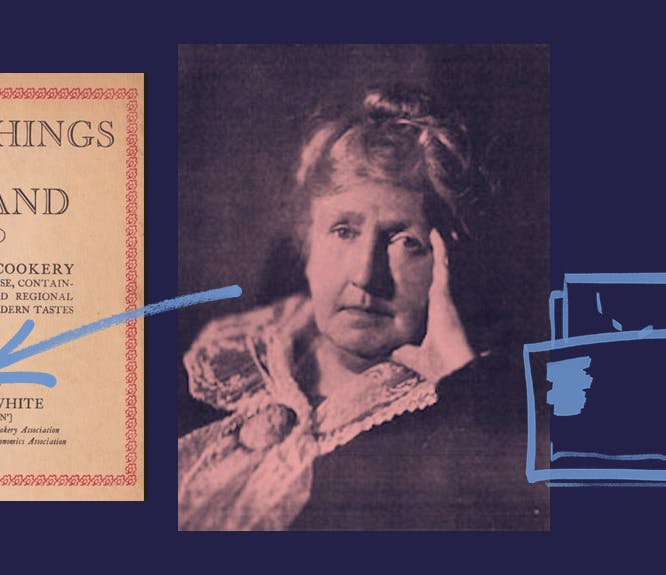Who was the first Black British Olympian?
2-3 minute read
By The Findmypast Team | October 22, 2020
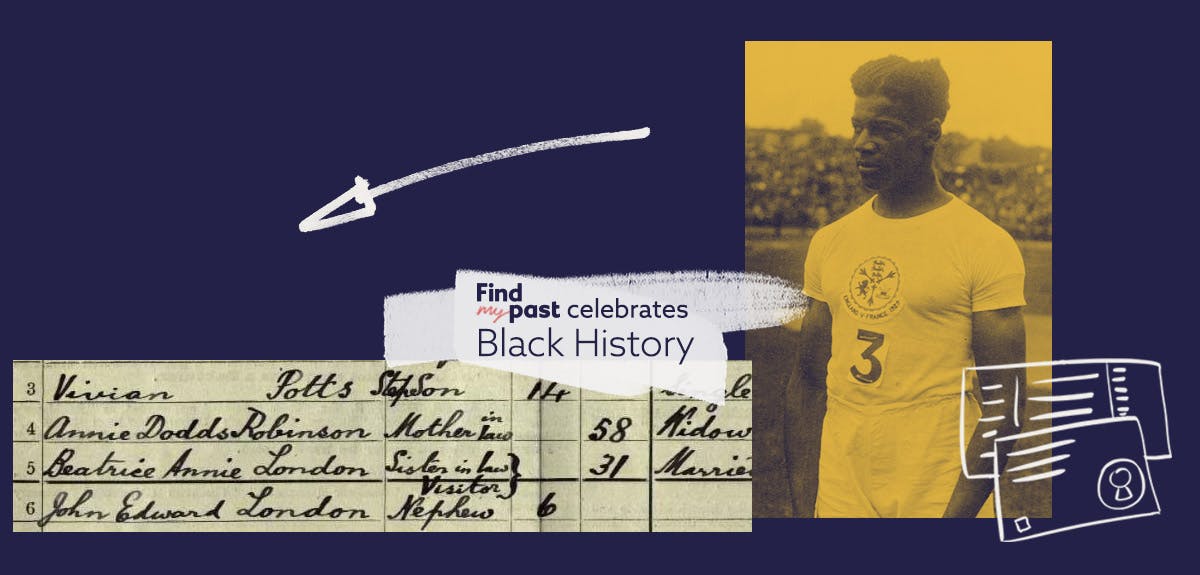
Not only did Jack London win Olympic medals, he also starred on the silver screen and served on the Home Front. Here's his remarkable life story.
Black athletes excel in a great many sports today and the date at which Black sportsmen and women were accepted and gained prominence is a measure of the willingness of a particular sport to embrace change.
For the country as a whole, the Olympics could be said to be paramount, as the athletes represent Great Britain on the most prestigious international stage. But who was the first Black British sportsperson to reach that pinnacle?
John Edward London
The first Black British Olympian appears to have been the sprinter John Edward London, who participated in the 1928 Amsterdam Olympics. Jack London, as he was known, won silver in the 100 metres and bronze with his team-mates in the 4 x 100 metres relay.
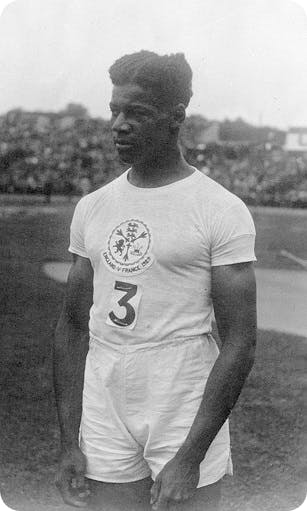
London was born in Georgetown, the capital of the then British colony of British Guiana, on 13 January 1905. He was permanently resident in the UK by 1921 at the latest. Athletics wasn’t a career in London’s day and it seems that his sporting years were cut short by injury. He developed a secondary career as a performer.
The 1939 Register is one of the few modern resources for family history that gives the full date of birth of an individual (rather than age). This makes it straightforward to search for and find Jack London. At the outbreak of World War 2, he was living at 80 Lambs Conduit Street, London WC1.

On the 1939 Register, there are six schedule numbers for number 80, a multiple-occupancy property. Only three were occupied. The 'R' against the other three schedules means 'Removed' or moved away. London was presumably living in a rented flat, perhaps in one of the elegant late 18th-century, four-story terraced houses characteristic of this part of Bloomsbury. The ground floor of the building may have been a shop, as is the case with many older surviving buildings in the street today.
Curiously, Jack London’s 1939 Register entry sees his wife Agnes appears before him on the record. The custom was for the head of the household to be shown first. All other married couples on the same page are presented with the husband first, the wife second; the reverse order only applies to the Londons.
Agnes London was a music hall dancer, while Jack himself was listed as a film actor and entertainer on the Register. He had recently appeared as Prince M’Bapi in the colonial parody Old Bones of the River, a film released in 1938 which may or may not stand the test of time.
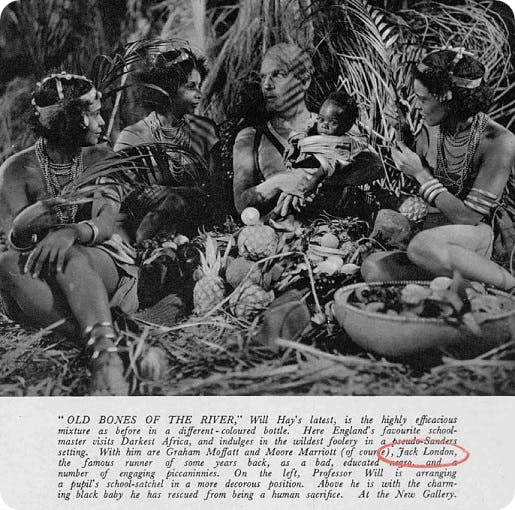
Illustrated Sporting and Dramatic News, 3 February 1939. Read the full article.
However, if you scroll over to the right of the 1939 Register record, you will see that both Agnes and Jack also served on the Home Front in the ARP (Air Raid Precautions). Agnes worked in a canteen and Jack in first aid. He would have been a trained first responder and would have tended to those injured during air raid attacks over London.
John Edward London also appears as a boy on the 1911 Census with his mother Beatrice Annie in Jesmond, Newcastle upon Tyne. He’s described as nephew to the head of the household and his mother as a sister-in-law.
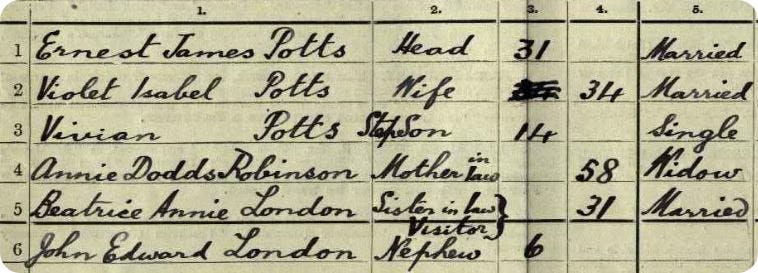
Beatrice London née Robinson was a Geordie born in 1879. She married John Edward’s father, John Edward senior, who was Black Guyanese, circa. 1903/04. Both parents died young – Beatrice a few months after the census was taken in November 1911 and John Edward senior back in British Guiana in June 1922.
John Edward senior must have been an interesting man. Originally a schoolmaster and minister in his native British Guiana, it seems he travelled to England to study medicine and met his wife-to-be there before returning to his homeland.
Like Jack London, there are so many inspirational Black British individuals forgotten in our history. Do you know who the first Black British mayor was? How about the first Black officers in the British Army? Through a series of articles, we're highlighting and celebrating the amazing Black British firsts that you weren't taught about in school. Tell us about the many others not on our list over on Facebook, Instagram or Twitter.
Related articles recommended for you
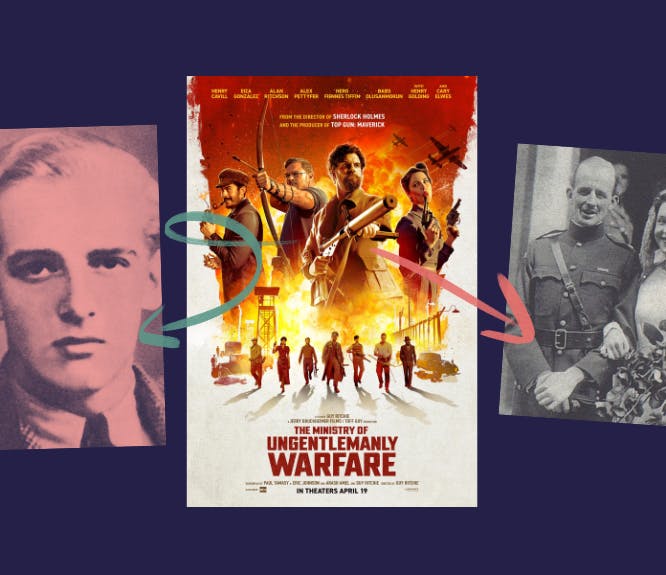
The incredible true story behind The Ministry of Ungentlemanly Warfare
History Hub

Venus Williams and the Tennis family: we made some surprising Wimbledon discoveries with our census records
Discoveries
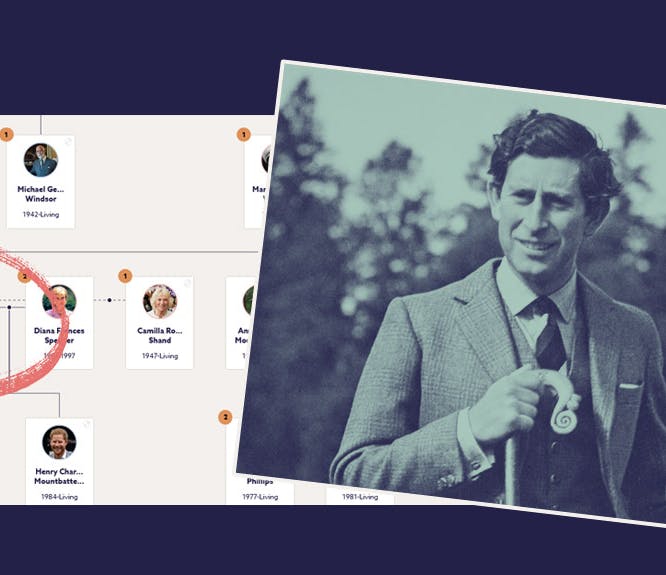
Who's who on King Charles III's family tree?
Build Your Family Tree
